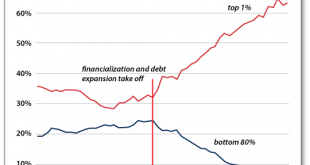Two hundred and forty-three years ago, our Founding Fathers signed the Declaration of Independence, freeing our great nation from the rule of the British Empire.
On July 4th, we acknowledge their courage with celebrations all across the country.
While you probably associate the fourth now with fireworks, cookouts, and summer mattress sales, I’m willing to bet you still hold freedom as one of your highest values.
But if you’re deeply in debt — or on shaky financial ground — fiscal freedom might seem like another 243 years away.
First, what does monetary independence mean to you?
For some people it’s a retirement number. Maybe $1 million in a 401(k), with your house paid off and expenses less than $1,000 a month. That person is probably more financially free than someone with $3 million in the bank and over $10,000 in monthly expenses. It all depends on your specific circumstances.
To me, monetary freedom is simply not having to base my decisions on financial constraints. You can achieve freedom with more money or less spending. It doesn’t really matter how you get there.
In the spirit of the holiday, I want to share with you four fiscal freedom principles. These should guide you throughout the rest of the year toward your own monetary independence.
Principle #1: Confront Your Spending
American households owe more than $1 trillion in credit card debt, according to the Federal Reserve.
Chalk it up to a lack of discipline to save or a meager salary that’s not enough, so you turn to borrowing to make ends meet.
No matter how you got there, it’s time to add up your debt and confront it — you’re not going to get ahead if you stay in denial.
And just like our forefathers had the courage to imagine a nation of liberty long before it materialized, you need to believe you can get yourself out of debt and stay out.
Starting this July 4th, commit to paying down your debt with a portion of every dollar that comes into your bank account.
Principle #2: Understand Your Investments
Just over half of Americans — 54% — invest in stocks, according to Gallup. While that number may sound decent, it still means there are millions of Americans missing out on their best chance at building real wealth.
Historically, the stock market has been the best place to build wealth over time. But you need to have some basic understanding of how investing works before you start.
As it stands, a lot of investors barely know what they’re invested in. For instance, among investors who own target date funds, the SEC found that only 48% knew that target date funds don’t provide guaranteed income after retirement.
Make sure you know what you’re getting into before you do it. But the bottom line is invest.
Principle #3: Improve Your Credit Score
Your credit score affects so many different areas in your life that you need to figure out how to improve your score.
If you have lousy credit, it impacts the rate you get on car loans, property, and all sorts of large purchases you make. The better your score, the lower your payments will be, and in turn the more money you can save.
Another reason you desperately want to start improving your credit score is because every inflated payment you make means those dollars can’t be invested elsewhere. Payments on large purchases typically last for many years. So, a bad credit score today will impact your lifetime savings dramatically.
Improving your credit score should be at the top of your list after this weekend.
Principle #4: Don’t Give Up
One of our Founding Fathers, Benjamin Franklin, famously said: “A penny saved is a penny earned.” America had to struggle hard for its own independence, but the payoff has been more than 200 years of freedom and prosperity.
If you truly want to achieve fiscal independence one day, it’s going to take some grit and self-discipline. You’re going to have to sacrifice short term pleasure for long term gain. But once you eliminate your debt, and continue saving and investing, you’ll eventually reach your monetary freedom day.
There are no magic shortcuts to wealth accumulation. If you apply the basics found in these four principles, you’ll be celebrating the rest of your life.
To a richer life,

— Nilus Mattive
Editor, The Rich Life Roadmap
Source link
 Best Stock Hints Latest Tips To Buy & Invest Best Stocks Today
Best Stock Hints Latest Tips To Buy & Invest Best Stocks Today


